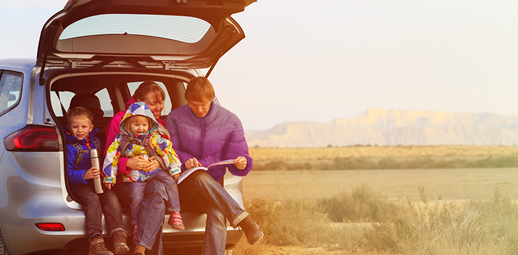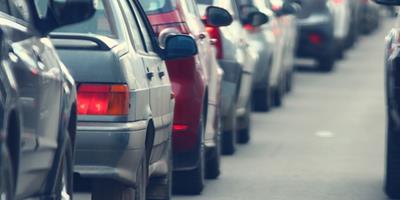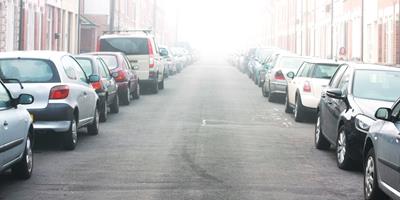
It’s no surprise that France is a popular tourist attraction for Brits. It’s one of the most visited countries in the world, welcoming around 80 million tourists every year.
If you’re among this year’s visitors who will be driving in France – whether to visit the country or pass through – then it’s important to know the differences between driving in the UK and France.
The obvious big difference is that you’ll have to drive on the right once you get off the ferry, plane or Eurostar. But that’s certainly not the only change to be aware of.
To help make your travels as smooth as possible, we’re sharing tips for driving in France.
EASY AS HACK
It’s important to know that French authorities have banned the use of all mobile phones behind the wheel, including those used with a hands-free kit or via a Bluetooth device.
At a Glance
- If you want to drive abroad, you need to know the rules and laws of that country
- Those driving in France this year need to know about speed limits, clean air zones and more
- Here are our tips for driving in France
What you need to have with you
Before you set off on your French road trip, it’s important to make sure you’ve got everything you need. So when you’re packing the car, make sure you add these to the list:
- A valid driving licence
- Reflective jackets - you’ll need one for each occupant, not just the driver
- A GB sticker, or Euro registration plates featuring the GB initials
- The vehicle registration document
- A warning triangle
Licence and insurance
You need to be at least 18 years old to drive a car or motorbike (over 80cc) in France and 16 if riding a motorbike at a lower cc.
It’s important to always have your licence documents with you, as well as proof of ID, such as your passport.
As for car insurance, you’ll need to have a minimum of third-party cover. Check whether your UK car insurance policy covers you for driving your car in Europe and what level of cover it offers.
Be aware of clean air zones
Like some parts of the UK, France has clean air. These zones include a number of popular tourist locations, including Paris, Strasbourg, Toulouse and Montpellier.
If your car or motorbike will be entering a clean air zone, you’ll need to display a sticker called a Crit’Air vignette, which details the vehicle’s emissions. Failure to do so means a fine of €68 (£58).
You don’t need to display the sticker if you’re taking the ferry or Eurotunnel and are not driving in any big urban areas.
But if you do need a sticker, the good news is that they’re easy and cheap to get your hands on. Just visit the official website and provide details of your car, including the vehicle’s VIN, or chassis number.
You’ll also need your DVLA V5 document.
The sticker costs €4.61 including postage for each vehicle. It lasts for the lifetime of the vehicle.
Avoid using phones or any devices
The French authorities have banned the use of all mobile phones while driving, including those used with a hands-free kit or via a Bluetooth device.
It’s just not worth the risk - if you’re caught, you could be hit with a €135 fine, so save those calls for when you’re not on the road.
Turn off your speed camera detectors
Many satellite navigation systems come with speed camera detectors, warning you if you’re approaching a camera.
However, this function is illegal in France, so you’ll need to turn them off. If you don’t, then you could be fined a hefty €1,500.
Check your satnav manual to work out how to turn change the settings, or else contact the manufacturer before you leave British shores.
Don’t drink
The French are known for their fine wine, but their laws on how much you can drink before getting behind the wheel are much stricter than in the UK.
You are allowed just 0.5mg of alcohol in your blood per 100ml in France – about one small beer – compared to 0.8mg in the UK.
In the past it was mandatory for all drivers in France to carry a breathalyser kit in their cars, but this is now more of a recommendation.
Follow the speed limit
The speed limit on French motorways is 80mph and 68mph when it’s raining.
On A and B roads, the speed limit is 50mph, so always make sure you’re not going faster.
What to do if your car breaks down
French motorways are privately managed. As a result, if you break down you aren’t allowed to ask your own breakdown firm to come and get you. Instead you should use one of the orange emergency telephones which are situated every couple of kilometres to call the police or the breakdown service that handles that area.
The charges for assistance on the motorway are set by the government each year. For vehicles that weigh 1.8 tonnes or less, it costs €144.52 for general recovery and towing to a nearby service station.
An out-of-hours recovery for cars under 1.8 tonnes is €216.78. For vehicles weighing between 1.8 and 3.5 tonnes, it’s €268.05.
Expect to pay at tolls
As the motorways are privately managed, you’ll need to pay at tolls.
Payments can be made with cash, though generally Visa or MasterCard are also accepted. The toll costs can soon add up, so it’s worth researching the cost of your journey, and how much you can save by avoiding the motorways, in advance.
Find out more about our car insurance.


